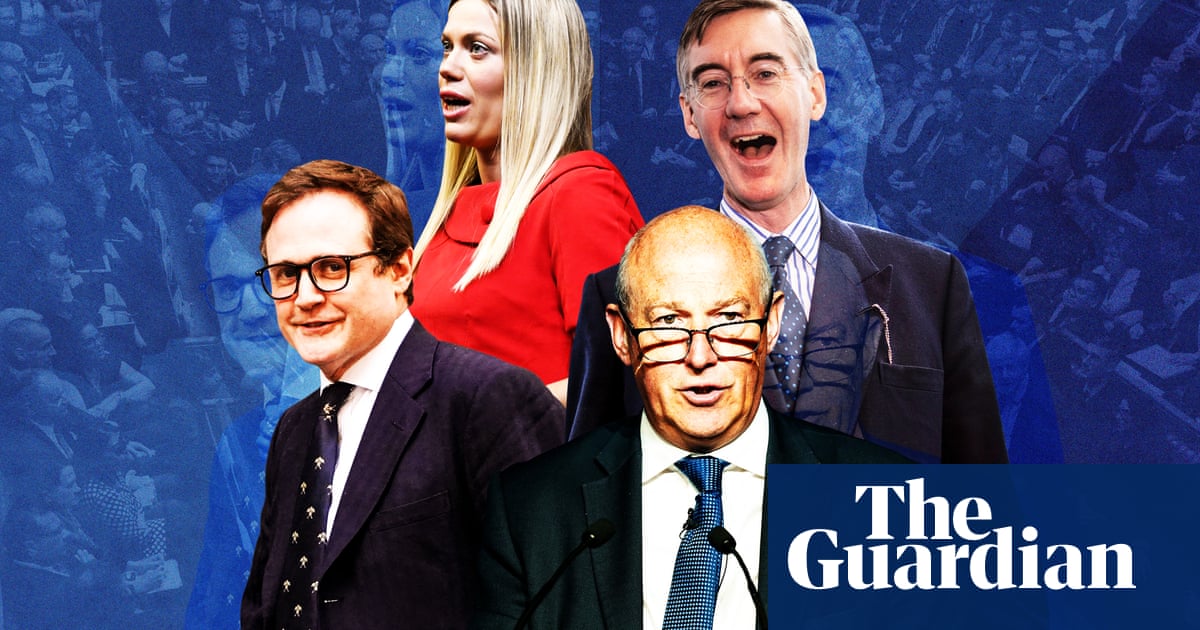
The Tory party conference seems to be floating along in a sea of delusion. Outside their cocooned security zone, in the real world of petrol shortages and soaring energy prices, a cost of living crisis is “flashing red for the Conservatives”, according to the pollster Public First, “especially among the working-class voters they’ve come to rely on”. There are signs the party’s “red wall” support is starting to crumble, though no one knows if or when there will be a tipping point, as inflation pushes up costs beyond household means this winter.
In denial, ministers witlessly blamed petrol queues on public “panic” – an insult to those desperate to get to work, school or hospital. Next, ministers claimed this had nothing to do with Brexit – even though there are no queues or empty shelves across the Channel.
Oh yes, this is all about Brexit, Boris Johnson suddenly swerved on Sunday: this great disruption was all in the plan, he told the BBC’s Andrew Marr. Brexit heralds “the end of the broken model of the UK economy that relied on low wages and low skill and chronic low productivity”, that used to “reach for the lever of uncontrolled immigration to get people in at low wages”. Expect a “period of adjustment”, says the prime minister. He hopes Brexit, his greatest hit and his forever campaign, can sail him through winter price shocks.
Under Johnson, Britain is living through a real-time great economic experiment, the uncharted waters of a Brexit without plans: with more than a million job vacancies, will the invisible hand of pure market forces send pay shooting high enough to pull people into unappealing work in far-off places? That free market religion had the fantastical Brexit minister Lord Frost claiming, “The British Renaissance has begun!” Meanwhile, outside the hall, protesting farmers warned that 120,000 pigs risk incineration for lack of abattoir workers (a potential scandal that Johnson appeared oblivious to when questioned by Marr).
Across the country, restaurants, pubs and cafes are closing down from a lack of chefs and other staff. Dare the prime minister sit back, arms folded, waiting for free markets to fix everything, even as frail old people are left neglected for lack of those missing 100,000 care workers? Or will he blink first and either issue more visas or up their pay? Usually he swerves at the 11th hour in response to public opinion.
“Delivery” is the conference’s rather unfortunate theme. Meanwhile in the real world, awaiting deliveries, supermarket shelves lack 20% of their orders, Ian Wright, head of the Food and Drink Federation, tells me there will be food, just not choices: “Remote and disadvantaged places are getting least – like Lowestoft or Minehead. That’s now normal.” He expects food inflation to hit 9% by the end of the year. So how patient will the public stay?
Upending Britain’s rotten low-pay, low-productivity model is a great goal – and the only half-respectable case there ever was for Brexit, though it was rarely made by rightwing free-traders at the time. Now (unless Johnson keeps backsliding on visas) we may see if immigration really did cause low pay: will employers be forced to train and cherish newly well-paid British workers? As Brexit does its damage, Johnson even pretends pay is already rising, despite the Office for National Statistics figures showing a real-terms fall.
The UK is growing fastest in the G7, Johnson claimed on Marr’s programme, repeated by chancellor Rishi Sunak : they failed to say this temporary bounce still left Britain doing worst in the G7 since the pandemic. No one in Manchester watching the manic boosterism of every minister would ever guess what’s happening in the world outside.
Economists’ models habitually collide with real people’s behaviour and attitudes: so far, Britain’s million vacancies, many caused by the lack of European workers, are not pushing up wages or conditions, says the Resolution Foundation’s Kathleen Henehan. Zero-hours jobs are increasing, not declining, and most of these vacancies are low-paid, with very few in middle or higher grades. “There’s no sign yet of improving conditions or pay,” she says, fearing that young people will be “shoved into low-grade jobs, bad for their long-term future, with no ladder upwards”, with few jobs for older workers.
Unpicked broccoli and raspberries rotted in the fields this year, with Christmas turkeys set to be imported for the first time. A National Farmers’ Union petition calls for British food self-sufficiency, which has fallen from 78% in the mid-1980s to 60% now. After looking over the abyss of our fragile supply chains, the chances are that voters will back British farmers over free-market orthodoxy: if so, expect more Johnson U-turns on farming visas.
If pay really was the prime minister’s great mission, he could raise low wages today: lift the minimum wage from £8.91 to Labour’s promised £10 right now. Unfreeze public pay, raise care workers’ wages, ban zero-hours jobs, reverse the universal credit cut: it’s in his immediate gift. He could steal Labour’s employment policies with fair pay agreements that fix minimum rates across every sector. (His hero Winston Churchill introduced these wages councils, which were later abolished by Margaret Thatcher.) Johnson could end the fire-and-rehire epidemic now sweeping through workplaces.
Days before that brutal £20 universal credit cut, due on Wednesday, the Trussell Trust has warned that yet more destitute families are pouring into its food banks, with heart-rending stories of everyday indignities. With trepidation, the trust awaits even more after this cut. But alas, only four – four – Conservative delegates bothered to show up for its conference breakfast meeting. Meanwhile the chancellor, in his round of interviews this morning, all but confirmed he is instead hoarding funds for a tax bribe ahead of the next election.
If this “period of adjustment” turns out to be permanent, if the cost-of-living crisis bites deep into household budgets, and if wages don’t rise faster than prices, Johnson may come to regret admitting that Brexit is the cause and claiming that all this “transition” is a price worth paying. YouGov already finds just 18% of those surveyed think Brexit has worked well, with 53% saying it’s worked badly.
Until now, Brexit has been a no-go “remoaner” danger zone for Labour, but by daring to promise to “make Brexit work” at last week’s conference, Keir Starmer began to challenge this worst of all Brexit deals. Johnson has now set himself up to be judged by whether his government genuinely raises pay. But neither his Brexit nor his policies look likely to make that happen.
Polly Toynbee is a Guardian columnist












